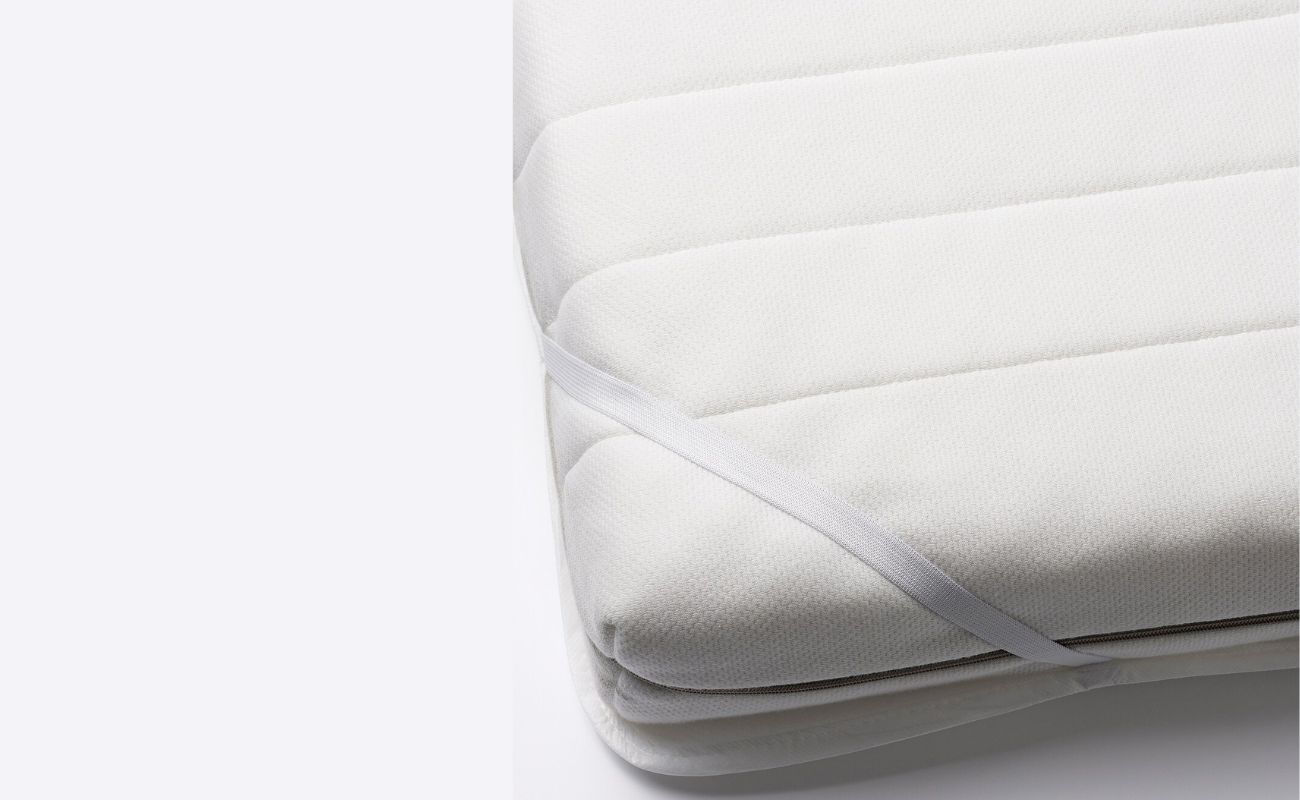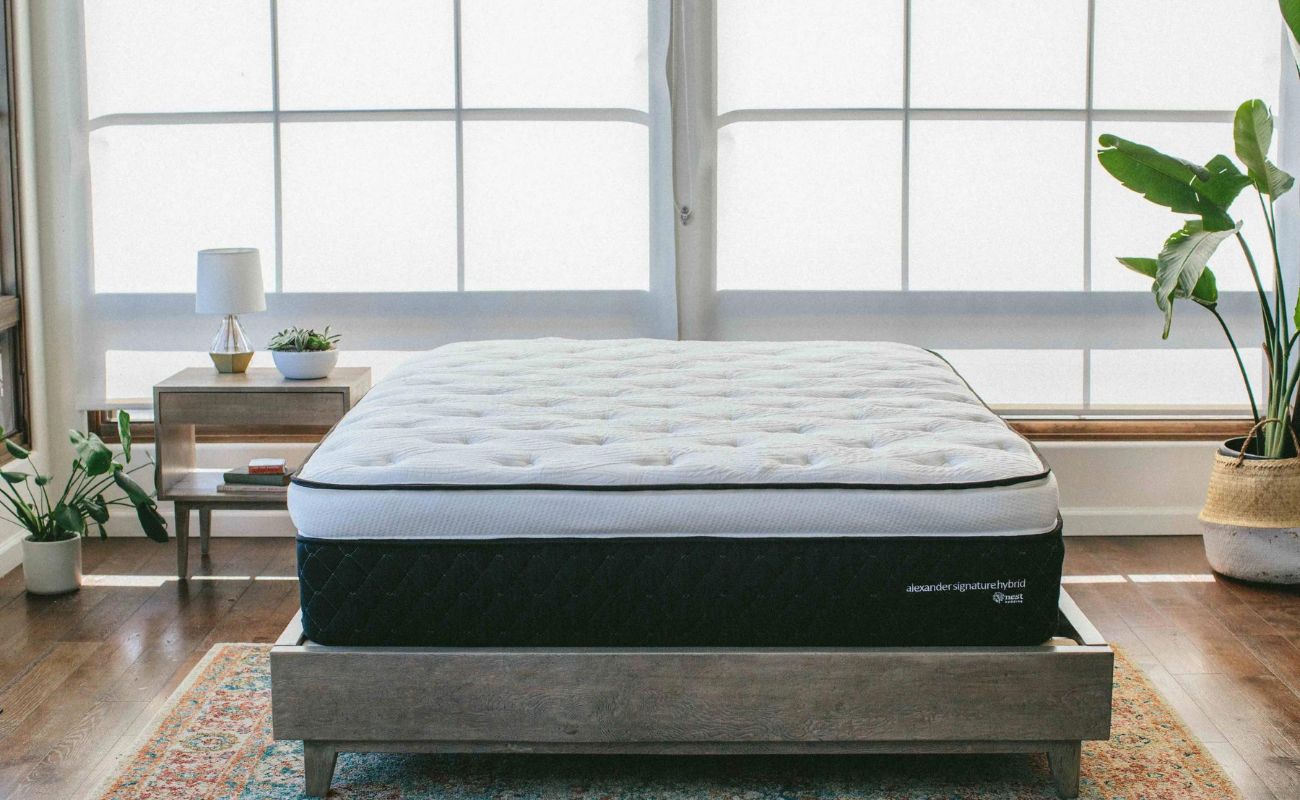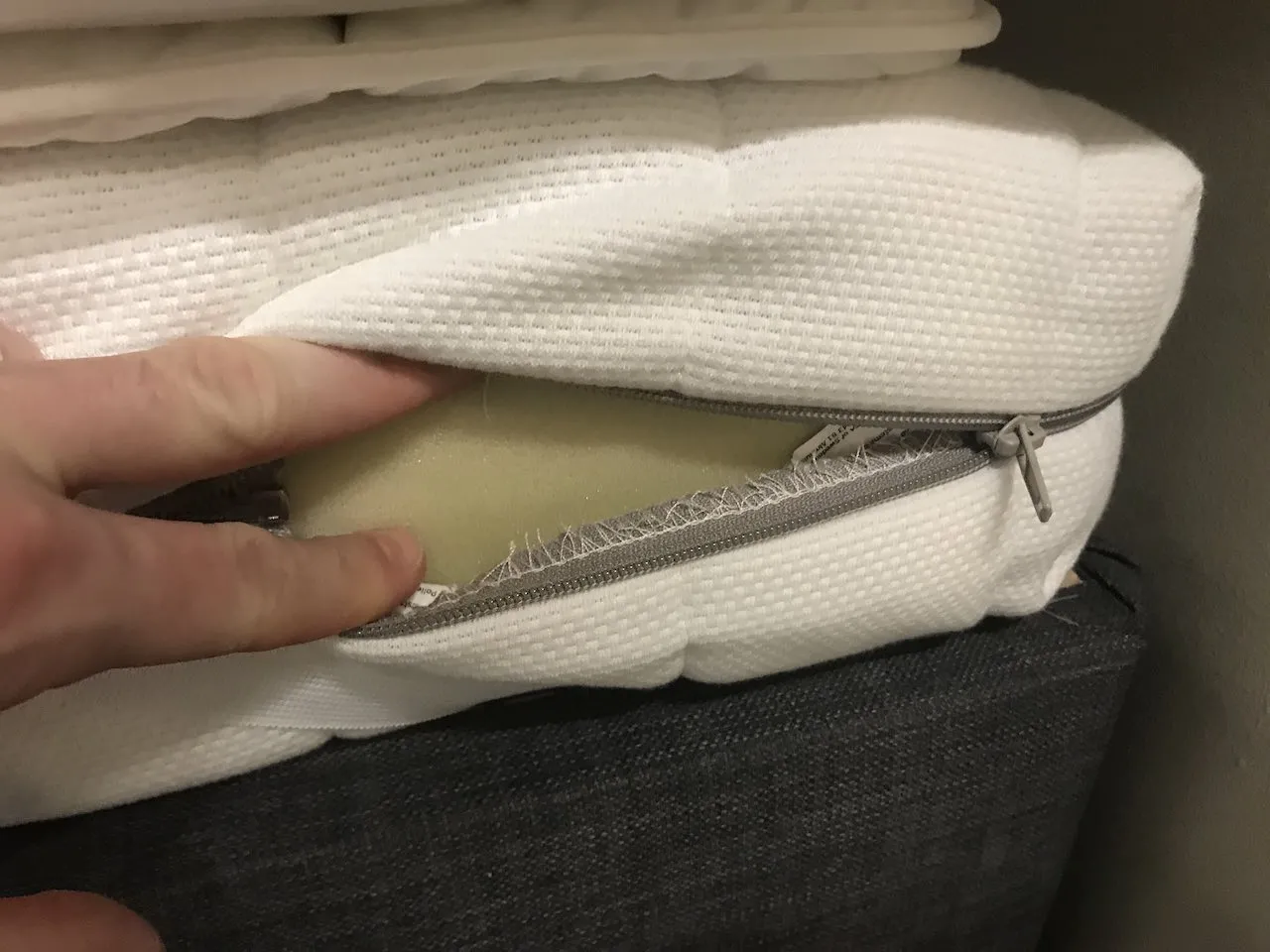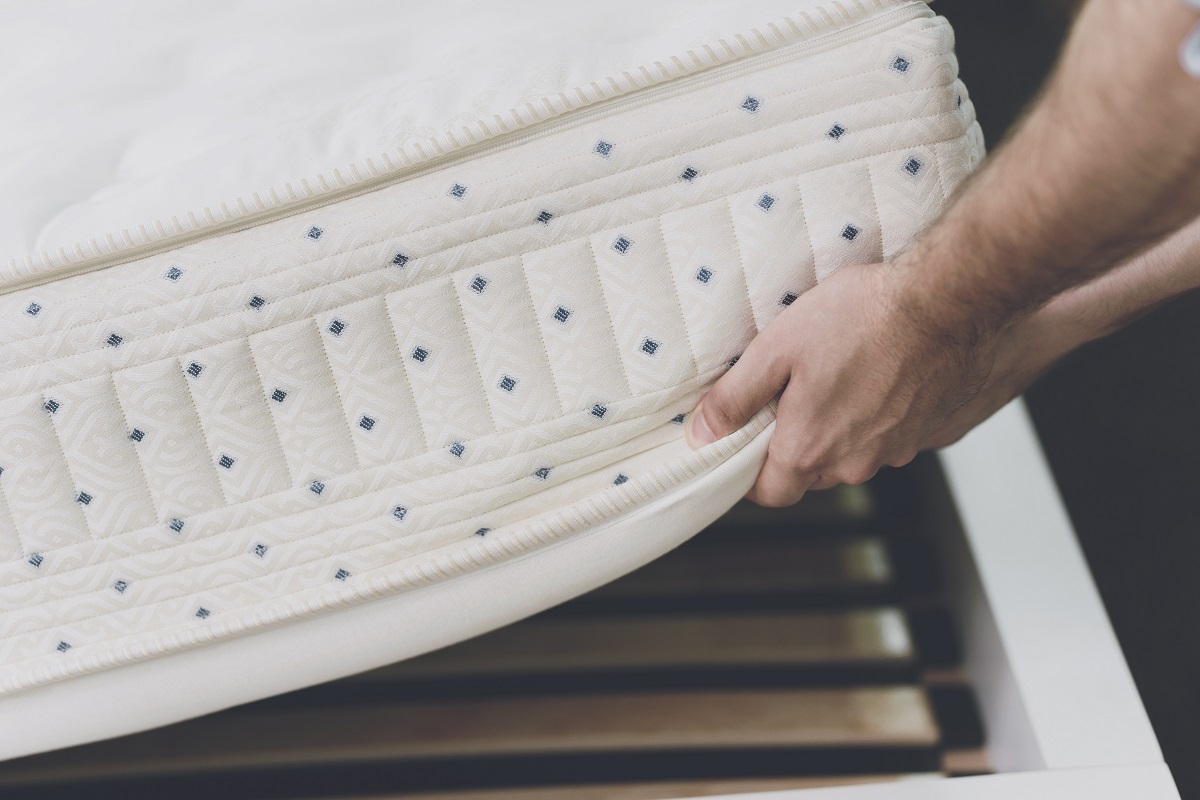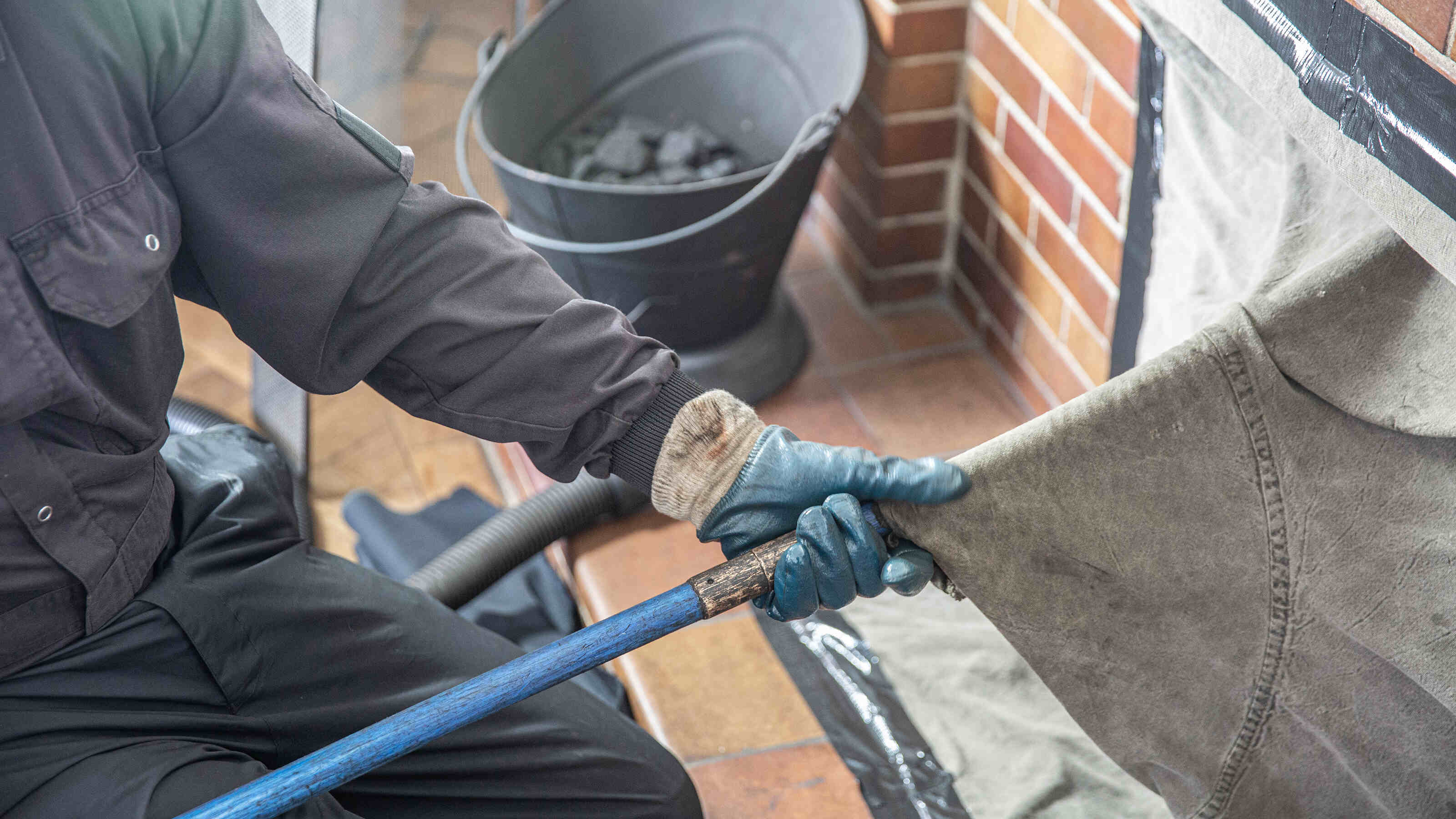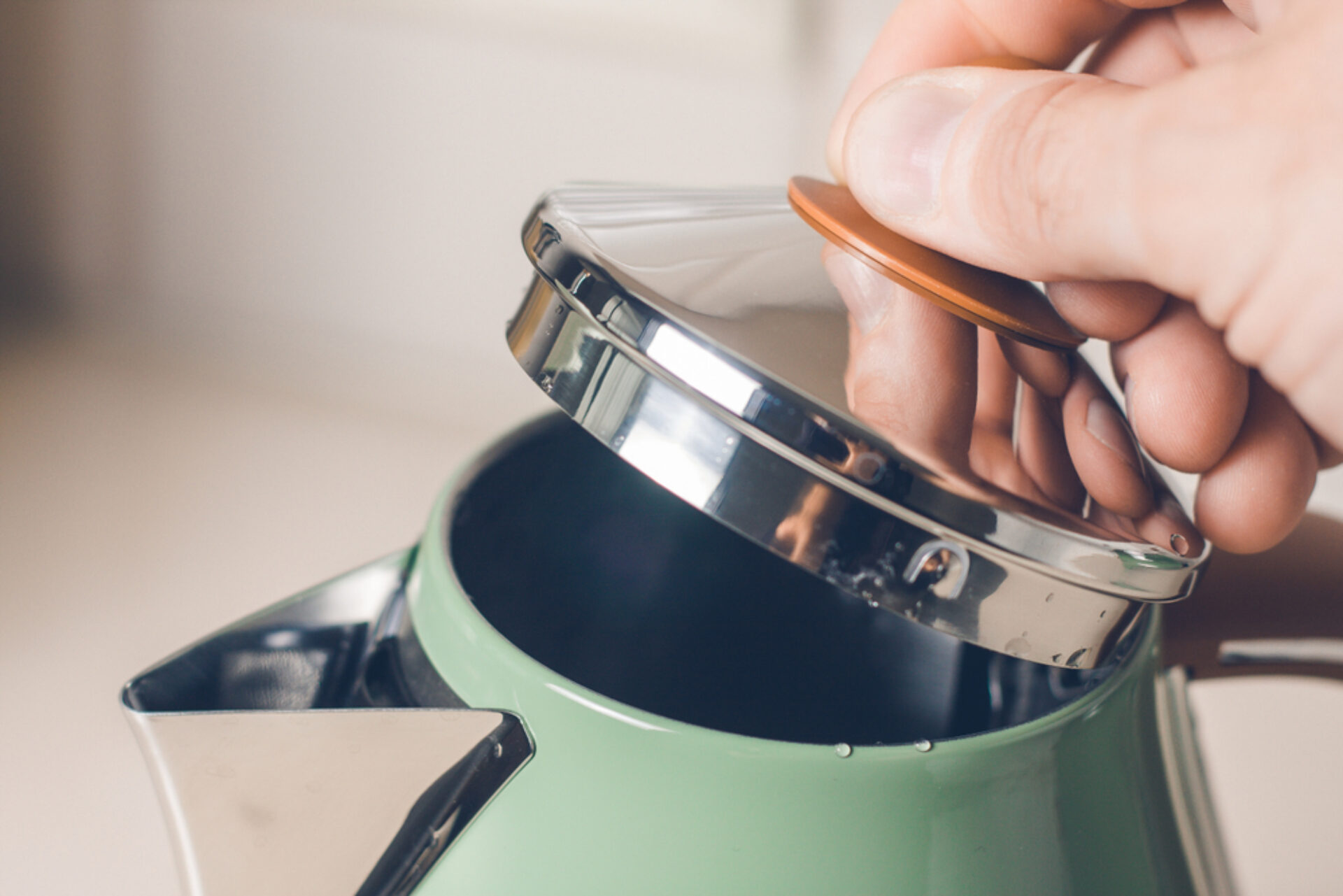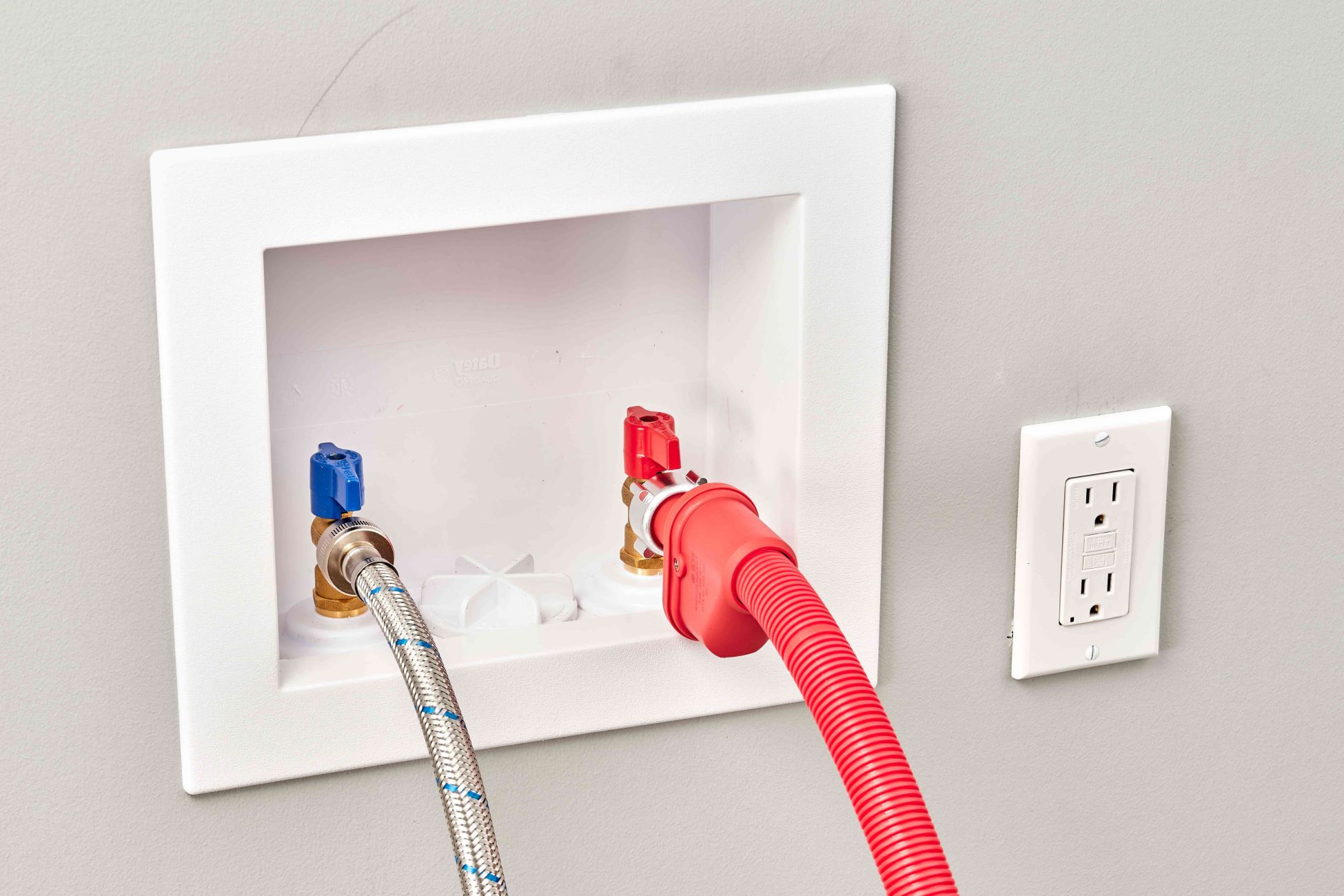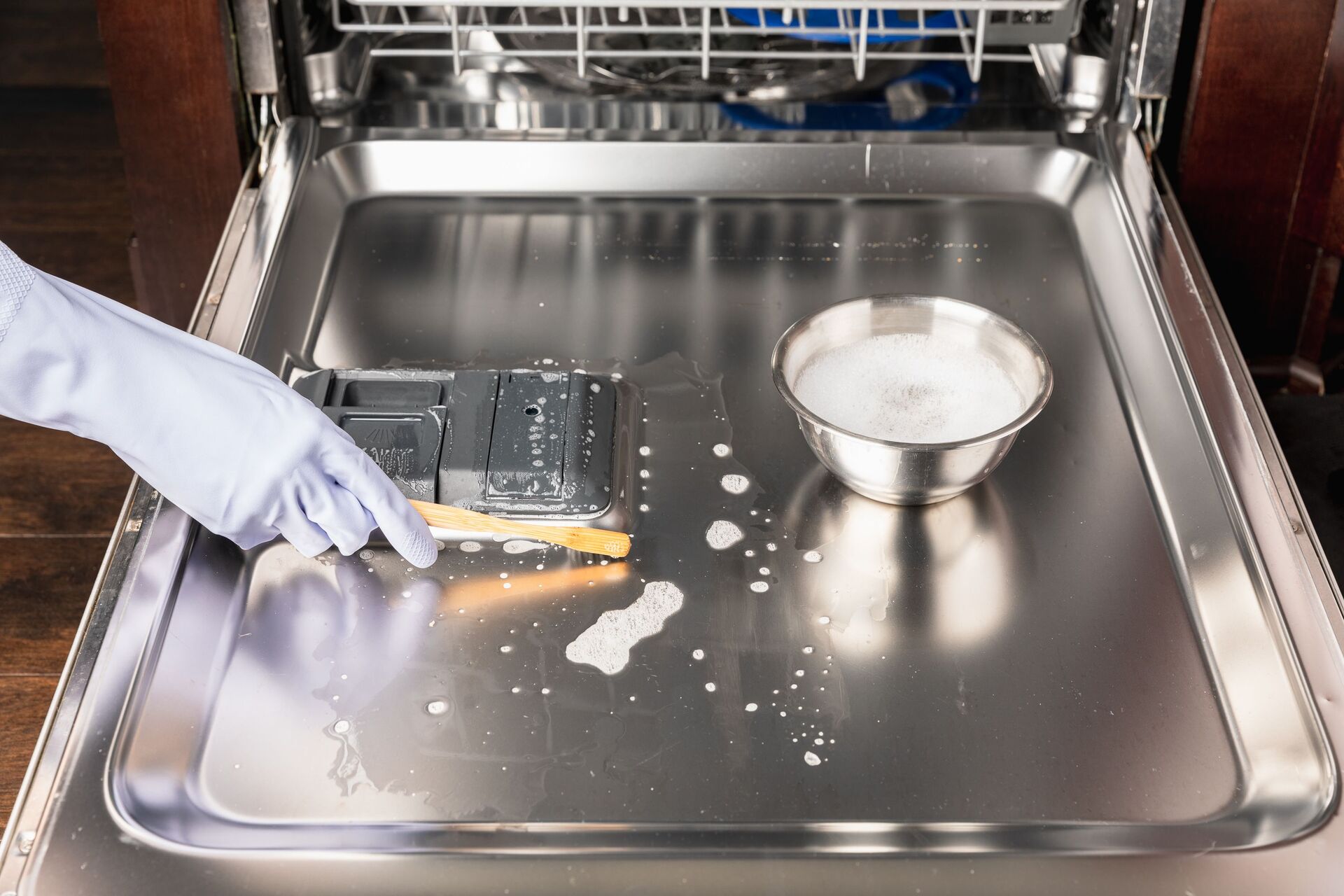Home>Furniture>Bedroom Furniture>How Often Should You Wash A Mattress Cover
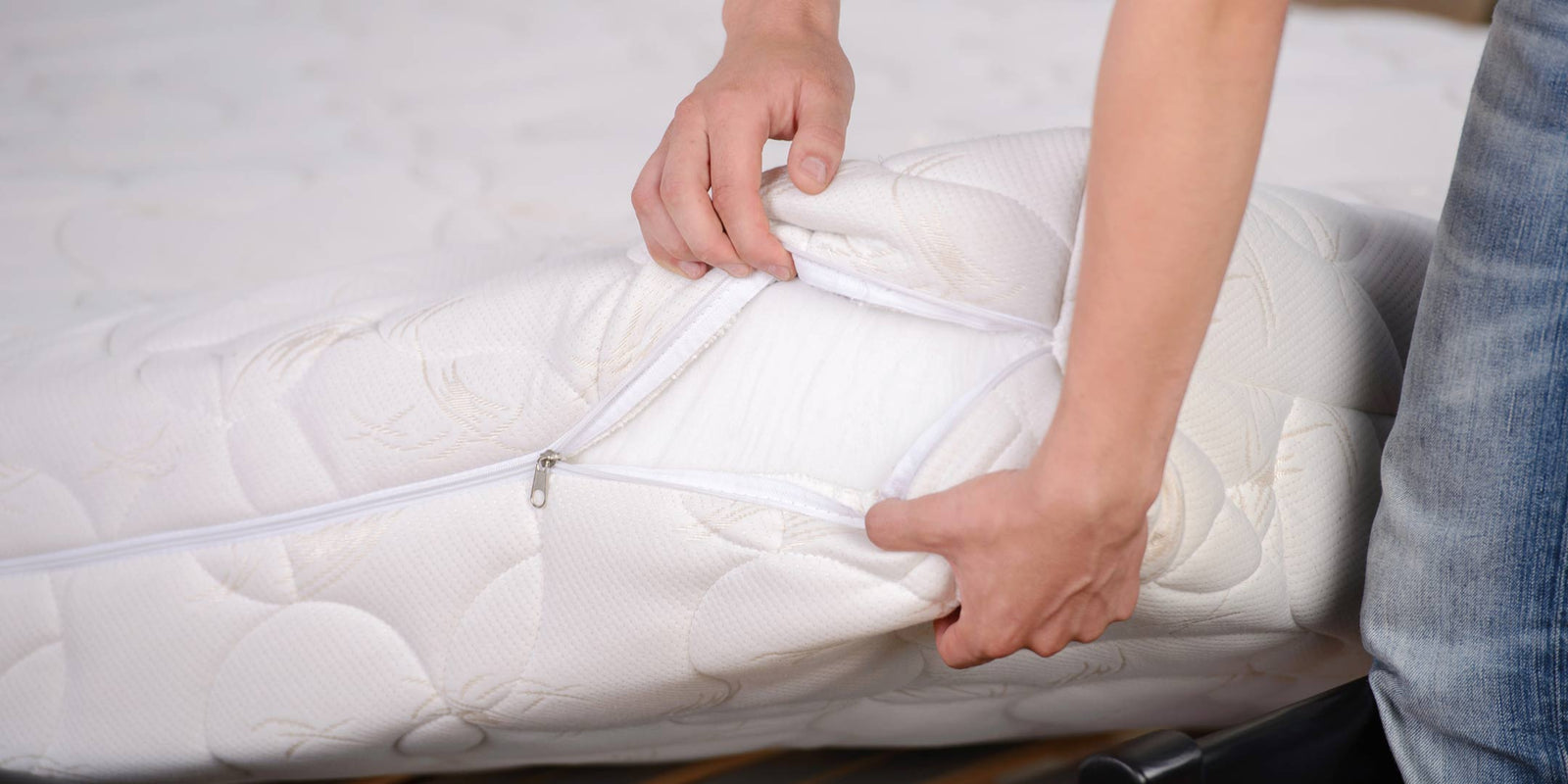

Bedroom Furniture
How Often Should You Wash A Mattress Cover
Modified: January 9, 2024
Discover the ideal frequency for washing your bedroom furniture's mattress cover. Learn how to keep it clean and fresh for a comfortable sleep.
(Many of the links in this article redirect to a specific reviewed product. Your purchase of these products through affiliate links helps to generate commission for Storables.com, at no extra cost. Learn more)
Introduction
When it comes to maintaining a clean and healthy sleep environment, washing your mattress cover regularly plays a crucial role. A mattress cover acts as a protective barrier against spills, stains, dust mites, bed bugs, and other allergens. Over time, these contaminants can accumulate and affect the overall hygiene of your mattress.
But how often should you wash your mattress cover? The answer depends on various factors such as personal preference, lifestyle, and the type of mattress cover you have. In this article, we will explore the importance of washing mattress covers, factors to consider when determining the frequency of washing, general guidelines for washing, different types of mattress covers and their recommended washing frequency, as well as tips for maintaining and extending the life of your mattress cover.
Key Takeaways:
- Regularly washing your mattress cover is crucial for preventing allergen build-up, controlling odors, and extending the life of your mattress, creating a healthier sleep environment.
- Consider personal preferences, lifestyle, and mattress cover type to determine the ideal washing frequency, ensuring a clean and hygienic sleep space for better overall sleep hygiene.
Read more: How Often Should You Rotate A Mattress?
Importance of Washing Mattress Covers
Regularly washing your mattress cover is essential for maintaining a clean and hygienic sleep environment. Here are some key reasons why washing your mattress cover is important:
- Prevents the build-up of allergens: As you sleep, your body sheds dead skin cells, and sweat and oils accumulate on your mattress cover. These substances provide a food source for dust mites and other allergens. Regular washing helps remove these allergens, reducing the risk of allergic reactions and respiratory issues.
- Protects against stains and spills: Accidents happen, and spills or accidents can easily occur on your mattress. By washing your mattress cover, you can prevent stains from setting in and protect your mattress from potential damage.
- Controls odors: Over time, mattresses can develop unpleasant odors due to the accumulation of sweat, body oils, and other bodily fluids. Washing your mattress cover helps eliminate these odors, leaving your mattress smelling fresh.
- Prevents the growth of mold and mildew: Moisture can seep into your mattress, creating an ideal environment for the growth of mold and mildew. By regularly washing your mattress cover, you can remove excess moisture and prevent the development of these harmful microorganisms.
- Extends the life of your mattress: A mattress is a significant investment, and proper maintenance can help prolong its lifespan. By washing your mattress cover regularly, you can prevent the accumulation of dirt, stains, and debris that can prematurely wear out the fabric of your mattress.
Overall, washing your mattress cover is crucial for maintaining a clean, healthy, and odor-free sleep environment. It helps protect your mattress, improves indoor air quality, and promotes better sleep hygiene.
Factors to Consider when Determining How Often to Wash Mattress Covers
The frequency at which you should wash your mattress cover can vary depending on several factors. Here are some key factors to consider when determining how often to wash your mattress cover:
- Personal preference: Some individuals may prefer the feeling of a freshly washed mattress cover and may choose to wash it more frequently. Others may be more lenient and opt for less frequent washings. Consider your personal comfort level and hygiene preferences.
- Allergies and sensitivities: If you or anyone in your household suffers from allergies or sensitivities, it is advisable to wash your mattress cover more frequently. This helps to remove allergens and provides a cleaner sleeping environment.
- Activity level and lifestyle: If you lead an active lifestyle, sweat more during the night, or if you regularly eat or drink in bed, you might need to wash your mattress cover more frequently. These activities can contribute to more significant stains and accumulation of dirt and bacteria on your mattress cover.
- Pets: If you have pets that sleep on your bed, their shedding hair, dander, and occasional accidents may necessitate more frequent washings. Pets can introduce additional allergens and require extra attention to maintain cleanliness.
- Environmental factors: Factors such as humidity levels, ventilation, and air quality in your bedroom can impact how quickly your mattress cover becomes soiled and requires cleaning. If you live in a particularly humid or dusty environment, you may need to wash your mattress cover more often.
It is important to note that while these factors are guidelines, they may vary from person to person. Use them as a starting point and adjust the frequency of washing based on your specific situation. Regularly inspect your mattress cover for any signs of stains, odors, or visible dirt, and wash it accordingly to maintain a clean and fresh sleep surface.
General Guidelines for Washing Mattress Covers
When it comes to washing your mattress cover, following some general guidelines can help ensure the best results. Here are some tips to keep in mind when laundering your mattress cover:
- Read the care instructions: Before washing, carefully read and follow the manufacturer’s instructions on the label of your mattress cover. This will provide specific guidance on the appropriate washing method and any recommended temperature settings.
- Pre-treat stains: If your mattress cover has any visible stains, pre-treat them before washing. You can use mild detergent or a stain remover, following the instructions provided. Allow the pre-treatment to sit for a few minutes to help break down the stain.
- Use a gentle cycle: To protect the fabric and maintain the integrity of your mattress cover, select a gentle or delicate cycle on your washing machine. This will help minimize the risk of damage and preserve the quality of the material.
- Use mild detergent: Opt for a mild, hypoallergenic detergent that is suitable for both fabrics and sensitive skin. Avoid using harsh chemicals or bleach, as they can damage the fabric and affect the performance of your mattress cover.
- Wash in warm water: Most mattress covers can be washed in warm water, but always check the care instructions to confirm the recommended water temperature. Warm water helps to effectively remove dirt and allergens without causing shrinkage or damage.
- Avoid high heat: When drying your mattress cover, use low heat or an air-dry setting if possible. High heat can shrink the fabric and negatively affect the elasticity, fit, and overall quality of the cover.
- Consider using a protective case: To provide an extra layer of protection for your mattress cover, consider using a waterproof or allergy-proof mattress protector. These covers are designed to repel liquids, prevent stains, and block allergens from reaching your mattress.
- Regularly inspect your mattress cover: After washing, carefully inspect your mattress cover for any signs of wear and tear, loose stitching, or damage. If you notice any issues, it may be time to replace your mattress cover.
By following these general guidelines, you can ensure that your mattress cover is thoroughly cleaned while preserving its quality and longevity. Remember to always refer to the specific care instructions provided by the manufacturer for the best results.
It is recommended to wash a mattress cover every 1-3 months to keep it clean and free of dust, sweat, and allergens. If there are any spills or stains, it’s best to wash it immediately.
Different Types of Mattress Covers and Their Recommended Washing Frequency
Mattress covers come in various materials and styles, each with its own recommended washing frequency. Here are some common types of mattress covers and how often they should be washed:
- Cotton mattress covers: Cotton is a popular choice for mattress covers due to its breathability and softness. It is recommended to wash cotton mattress covers every 1 to 2 months, or as needed. Cotton covers are typically machine washable and can withstand regular laundering.
- Polyester mattress covers: Polyester covers are known for their durability and resistance to stains and wrinkles. They are also machine washable, making maintenance a breeze. Generally, polyester mattress covers should be washed every 2 to 3 months, depending on your individual needs.
- Waterproof mattress covers: Waterproof mattress covers are designed to protect your mattress from spills, stains, and liquid penetration. They are typically made of materials such as vinyl or polyurethane. These covers should be washed every 1 to 2 months, or as required, to maintain their effectiveness in repelling liquids.
- Allergen-proof mattress covers: Allergen-proof mattress covers are specifically designed to block dust mites, pet dander, and other allergens from entering your mattress. These covers should be washed every 1 to 2 months to ensure that allergens do not accumulate on the surface.
- Memory foam mattress covers: Memory foam mattress covers may require extra care due to their delicate nature. While some memory foam covers are machine washable, always check the care instructions provided by the manufacturer. In general, it’s recommended to spot clean memory foam covers as needed and air them out regularly to prevent odors and maintain freshness.
Remember to always refer to the care instructions specific to your mattress cover to determine the ideal washing frequency. Additionally, factors such as personal preferences, allergies, and everyday use should also be considered when determining how often to wash your mattress cover.
Read more: How Often Should You Change Mattress
Tips for Maintaining and Extending the Life of Mattress Covers
Proper care and maintenance can significantly extend the life of your mattress cover and ensure that it continues to provide optimal protection. Here are some tips to help you maintain and prolong the lifespan of your mattress cover:
- Regularly vacuum: Vacuum your mattress cover periodically to remove any dust, dirt, or surface debris. This helps prevent the buildup of allergens and keeps your cover fresh and clean.
- Rotate your mattress: To promote even wear and distribute body weight, rotate your mattress periodically. This will also allow for more uniform usage of the mattress cover and prevent excessive wear and tear on specific areas.
- Address spills and stains promptly: If you spill something on your mattress cover, act quickly to prevent stains from setting. Blot the area with a clean cloth or paper towel and follow the appropriate stain removal techniques for the specific type of stain.
- Avoid eating and drinking in bed: To minimize the risk of spills and stains, try to avoid consuming food and beverages while in bed. If you do indulge, be cautious and use a tray or placemat to catch any potential spills.
- Protect the cover during moving or storage: If you’re moving or storing your mattress, ensure that the cover is properly protected. Use a mattress bag or specialized cover to shield it from dust, dirt, and potential damage during transportation or storage.
- Follow proper washing instructions: Always refer to the washing instructions provided by the manufacturer for your specific mattress cover. Follow the recommended temperature settings, detergent, and drying methods to avoid damaging the fabric or compromising its protective properties.
- Consider using an additional mattress protector: To provide an extra layer of protection for your mattress cover, consider using a separate mattress protector. This can help further safeguard your mattress from spills, stains, and allergens, increasing the lifespan of both the mattress and its cover.
- Inspect for damage regularly: Regularly check your mattress cover for any signs of wear and tear, such as loose stitching, rips, or holes. If you notice any damage, repair it promptly or consider replacing the cover to ensure continued protection.
By following these maintenance tips, you can keep your mattress cover in optimal condition, prolong its durability, and enjoy a cleaner and healthier sleep environment.
Conclusion
Washing your mattress cover regularly is essential for maintaining a clean and hygienic sleep environment. By following the recommended guidelines and considering various factors such as personal preference, lifestyle, and the type of mattress cover you have, you can determine the ideal frequency for washing your mattress cover.
Regularly washing your mattress cover helps prevent the build-up of allergens, protects against stains and spills, controls odors, prevents the growth of mold and mildew, and extends the life of your mattress. It also contributes to a healthier sleep environment and better overall sleep hygiene.
When washing your mattress cover, remember to read the care instructions, pre-treat stains, use a gentle cycle, and avoid high heat. Different types of mattress covers, such as cotton, polyester, waterproof, allergen-proof, and memory foam covers, may have specific recommendations for washing frequency.
To maintain and extend the life of your mattress cover, make sure to regularly vacuum, rotate your mattress, address spills promptly, avoid eating and drinking in bed, protect the cover during moving or storage, and follow proper washing instructions. Additionally, considering the use of an additional mattress protector can provide an extra layer of protection.
In conclusion, by prioritizing the regular washing and proper care of your mattress cover, you can ensure a clean, fresh, and comfortable sleep environment for years to come. Not only will you enjoy the benefits of improved hygiene, but you’ll also extend the life of your mattress and enhance your overall sleep experience.
Frequently Asked Questions about How Often Should You Wash A Mattress Cover
Was this page helpful?
At Storables.com, we guarantee accurate and reliable information. Our content, validated by Expert Board Contributors, is crafted following stringent Editorial Policies. We're committed to providing you with well-researched, expert-backed insights for all your informational needs.


